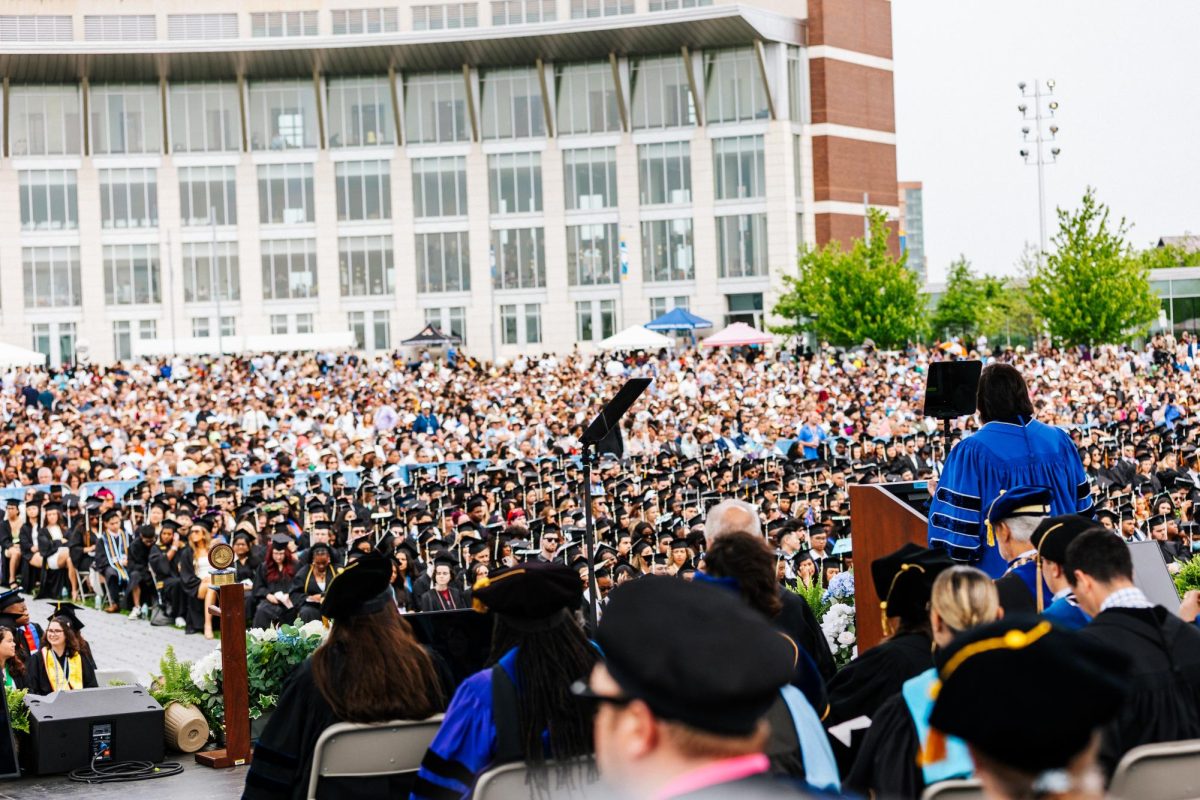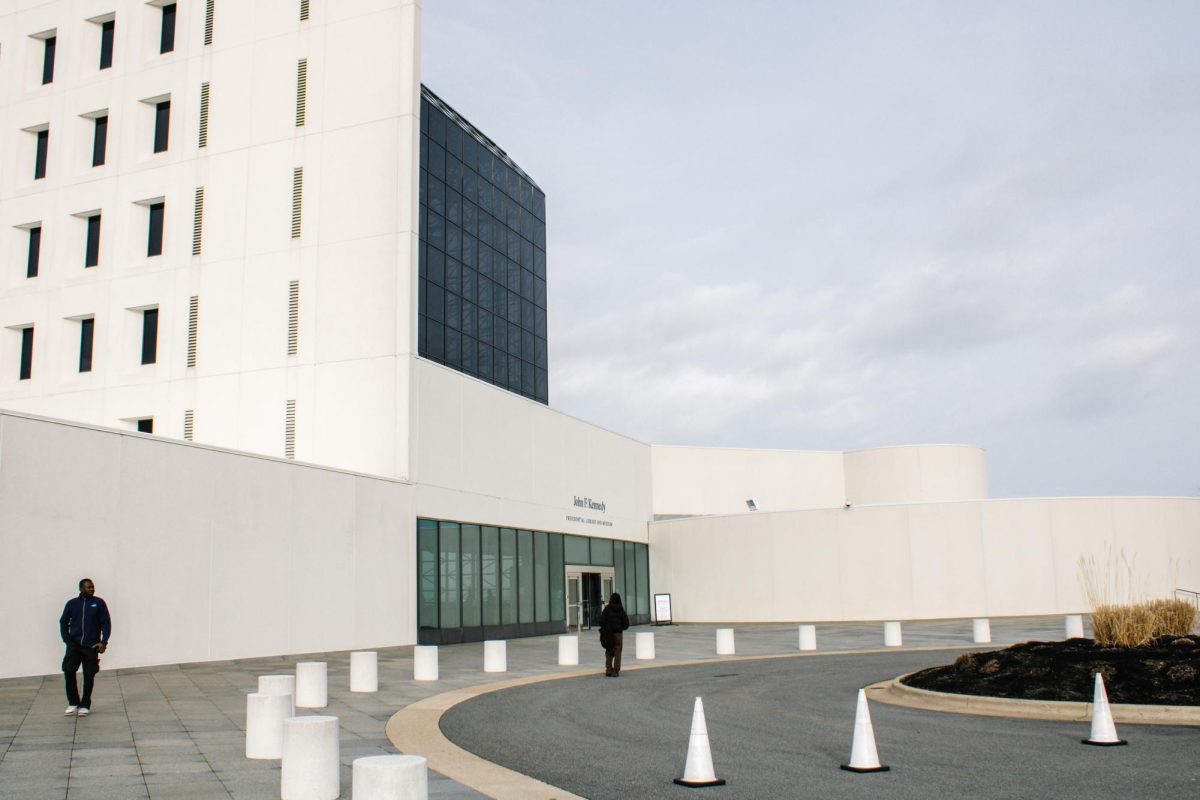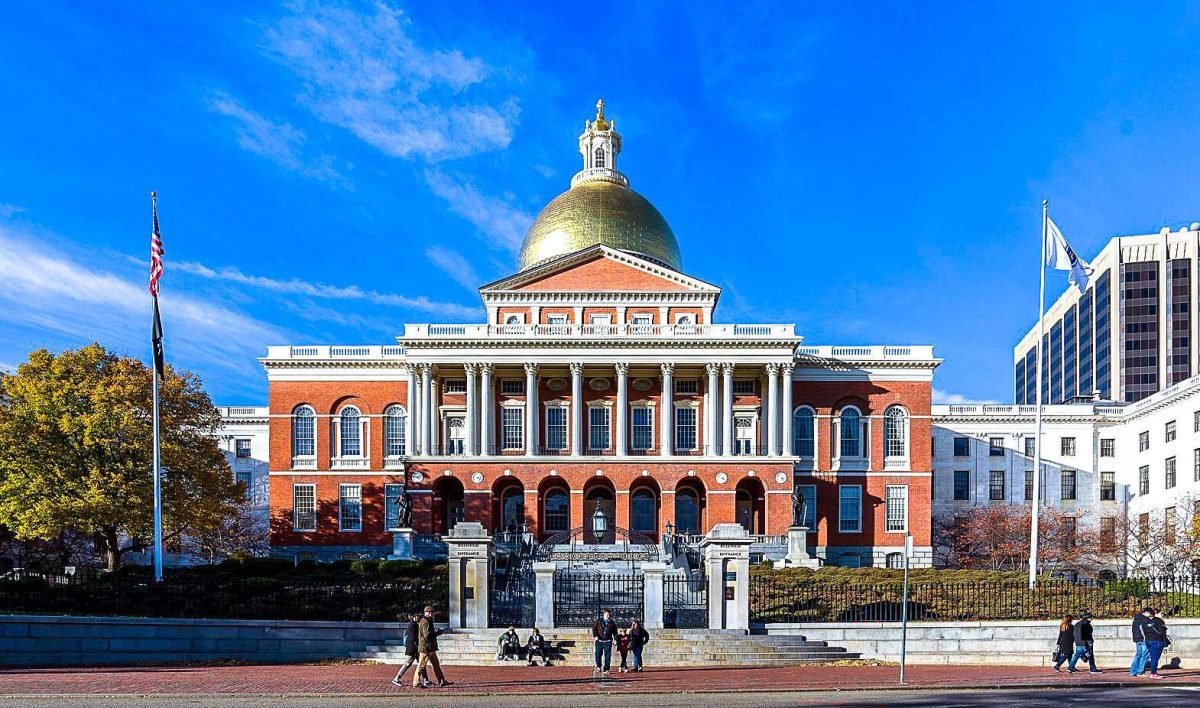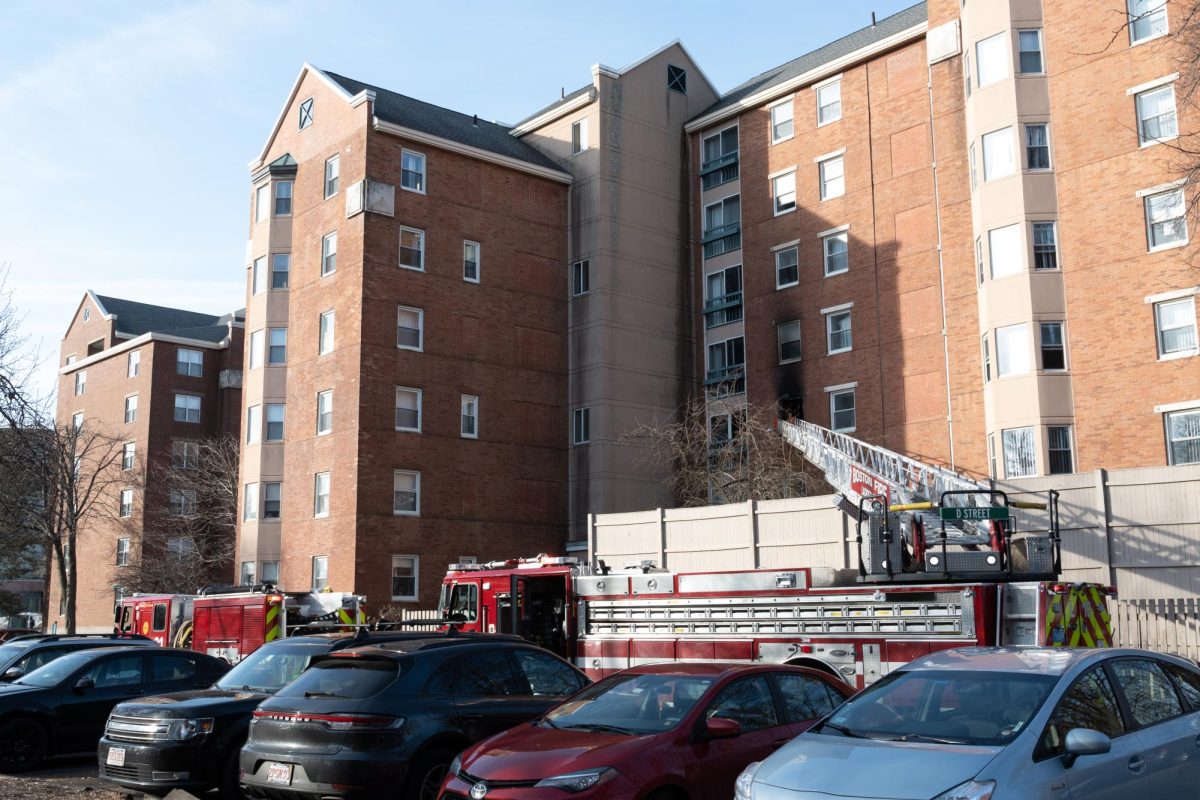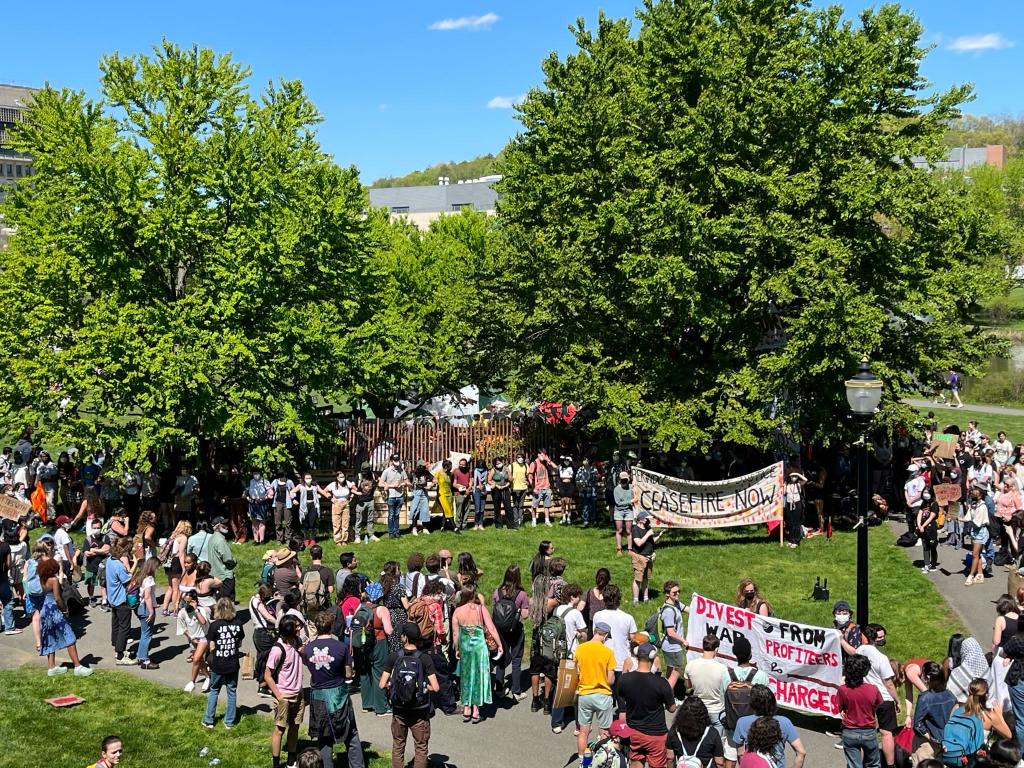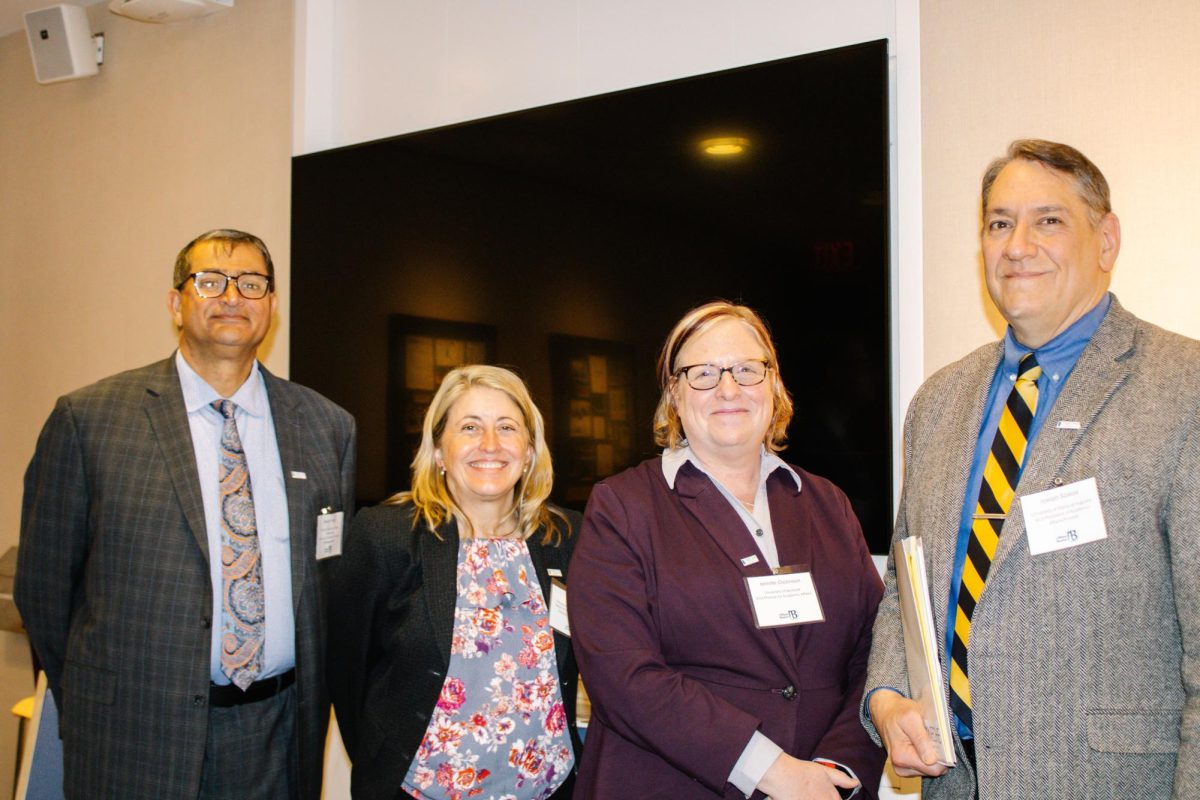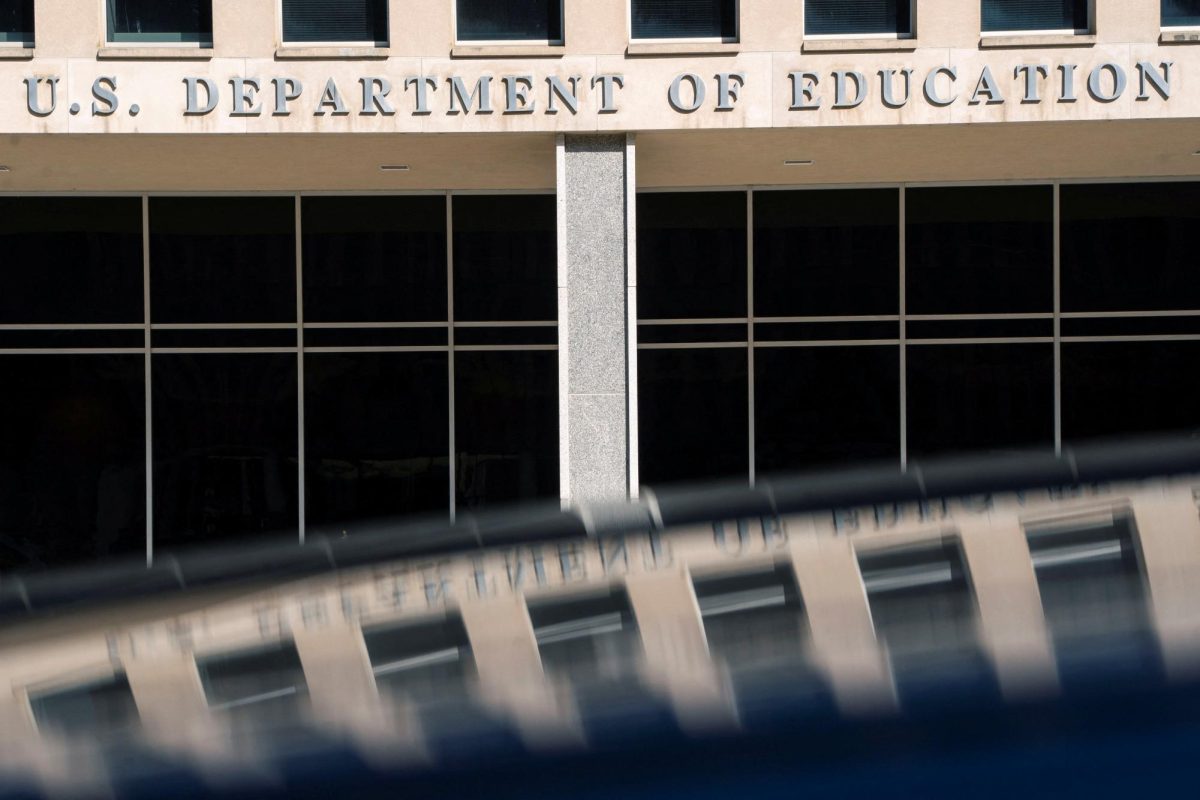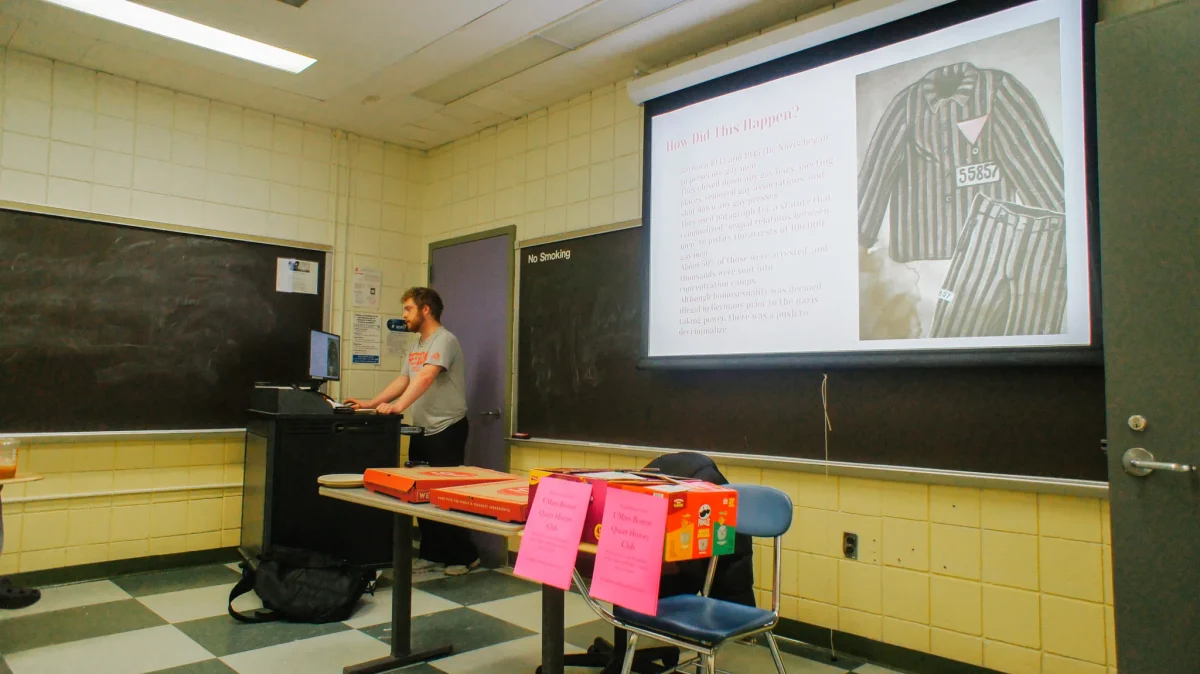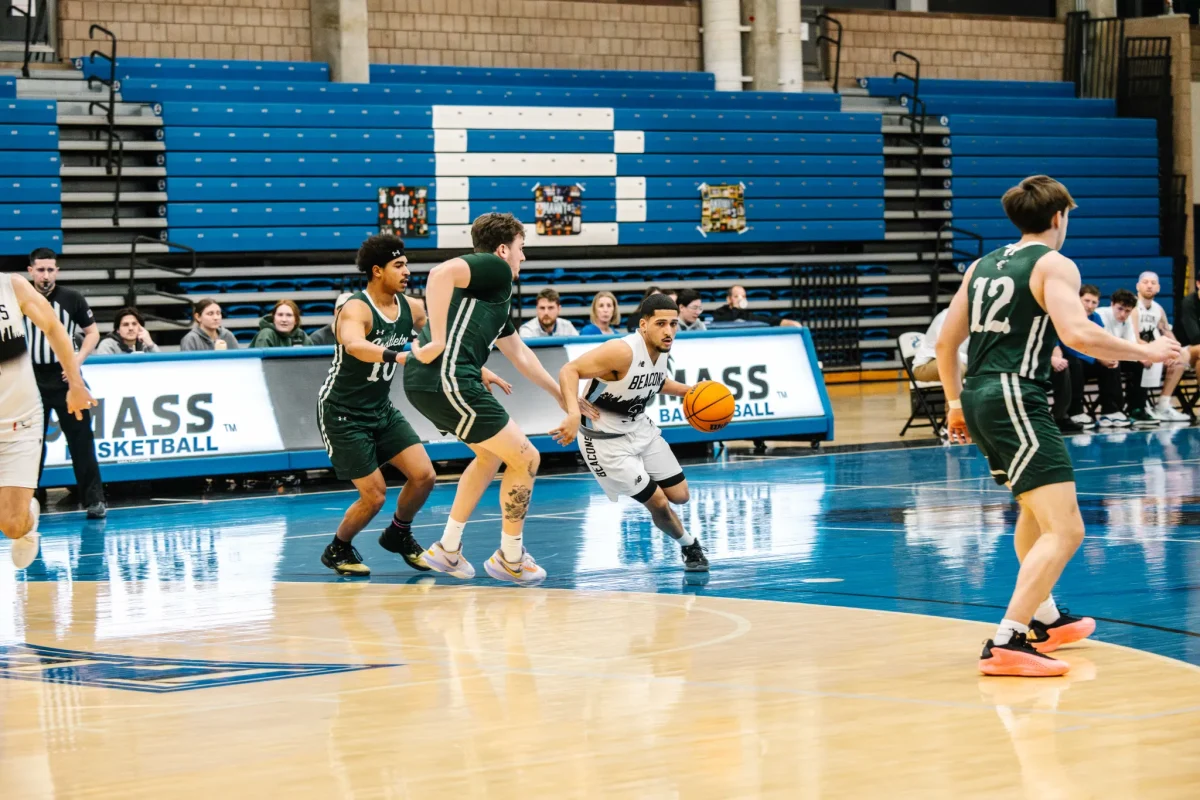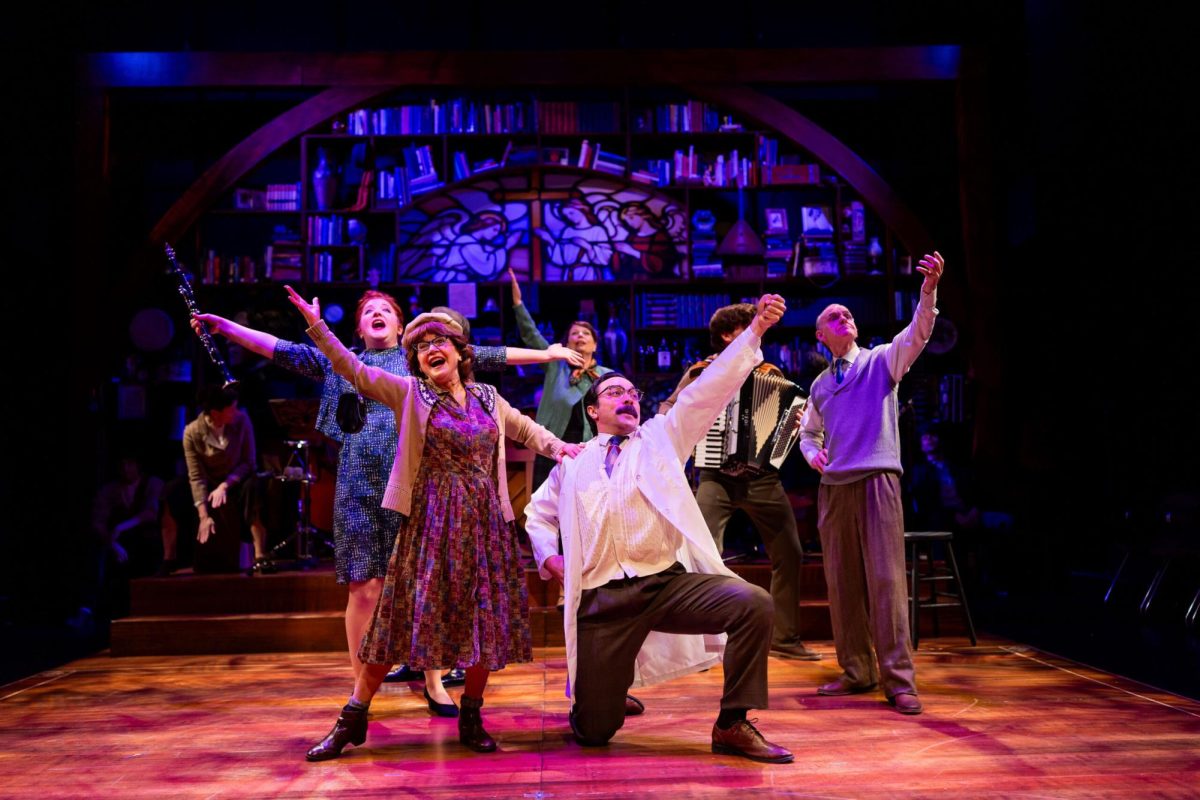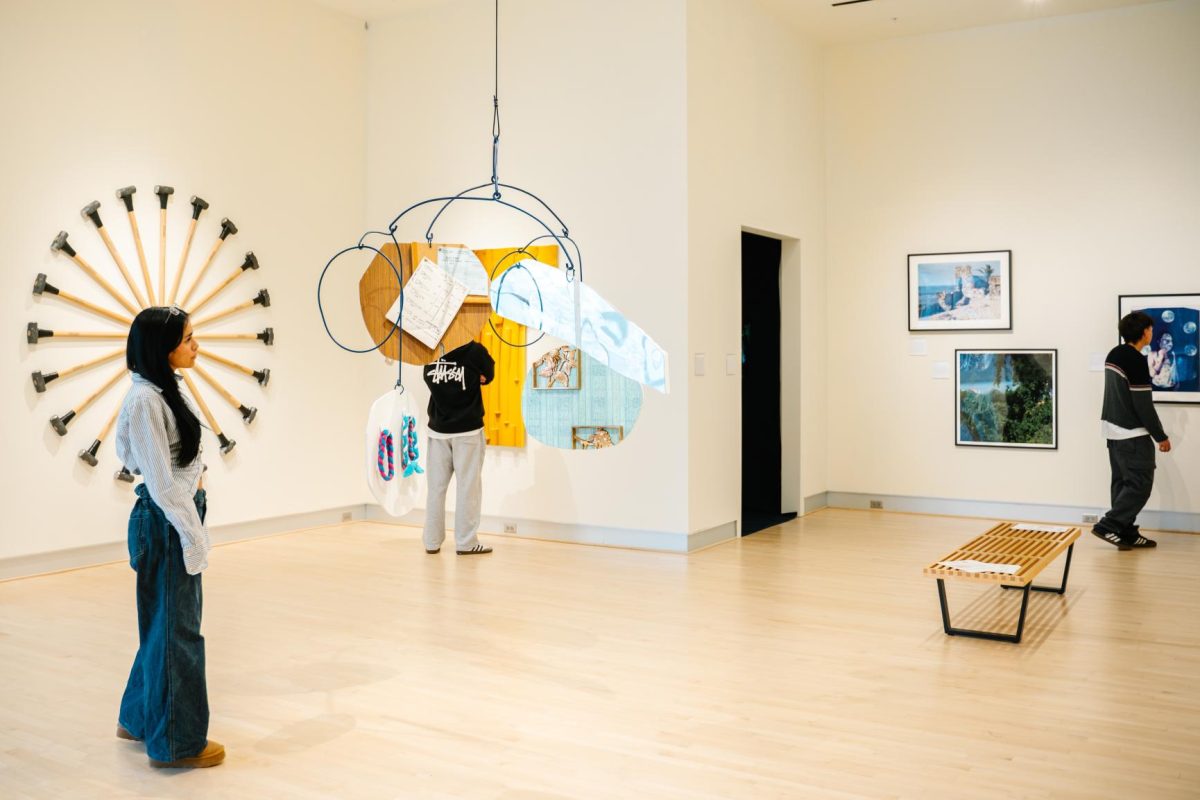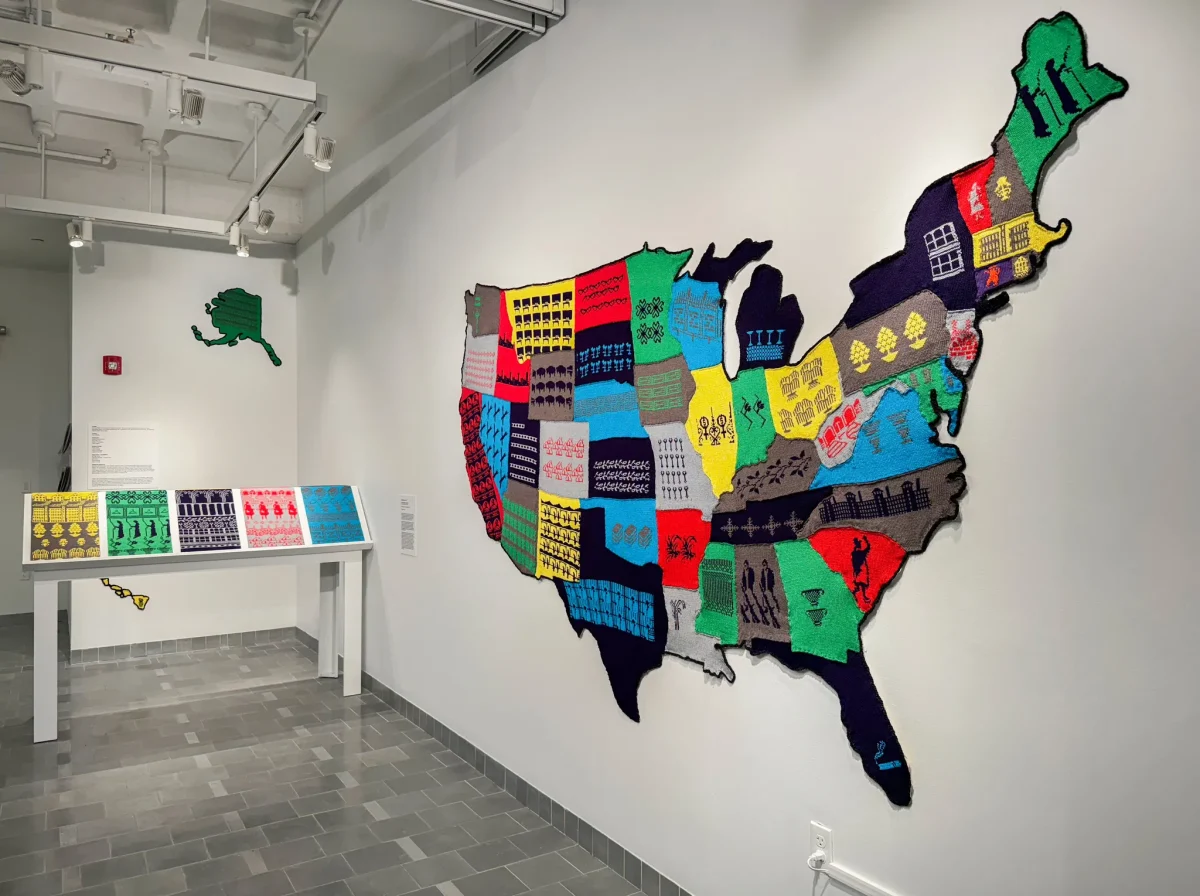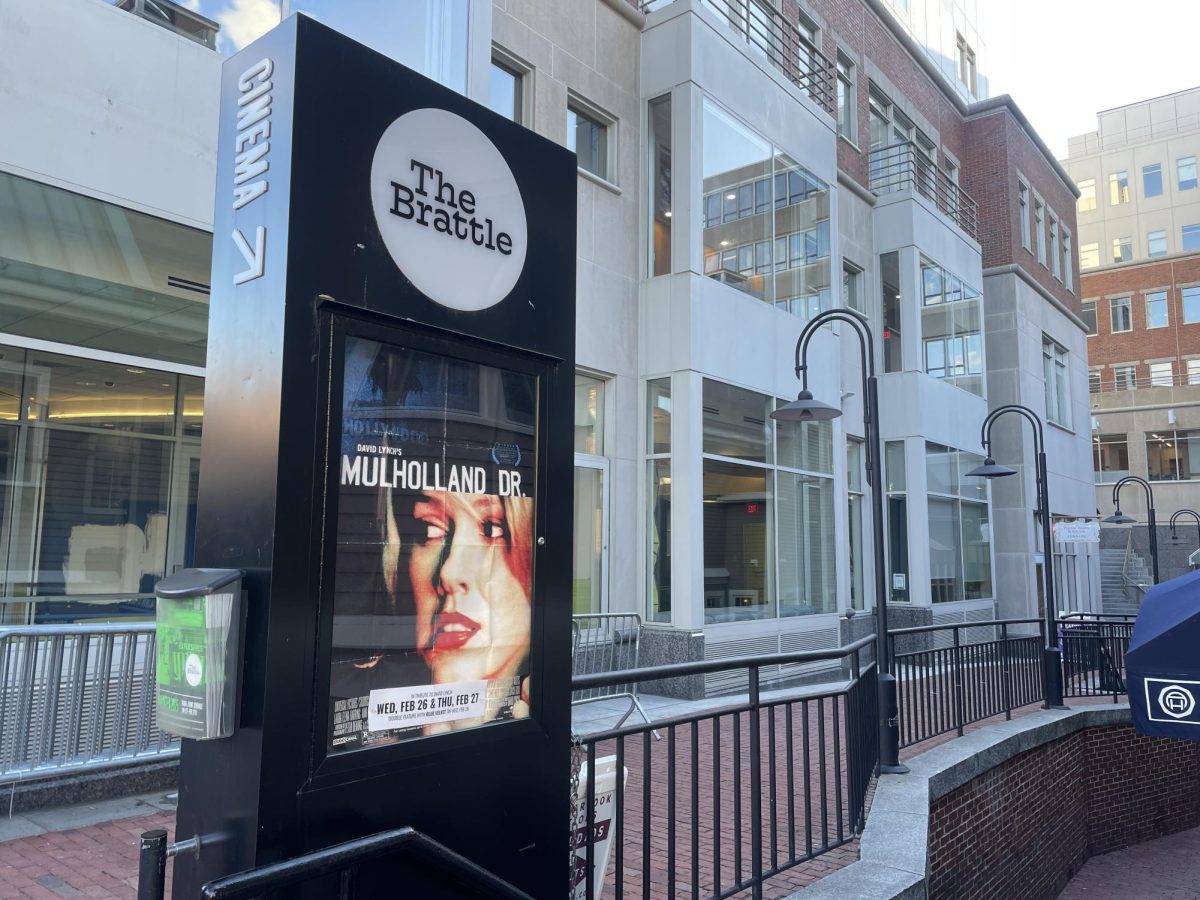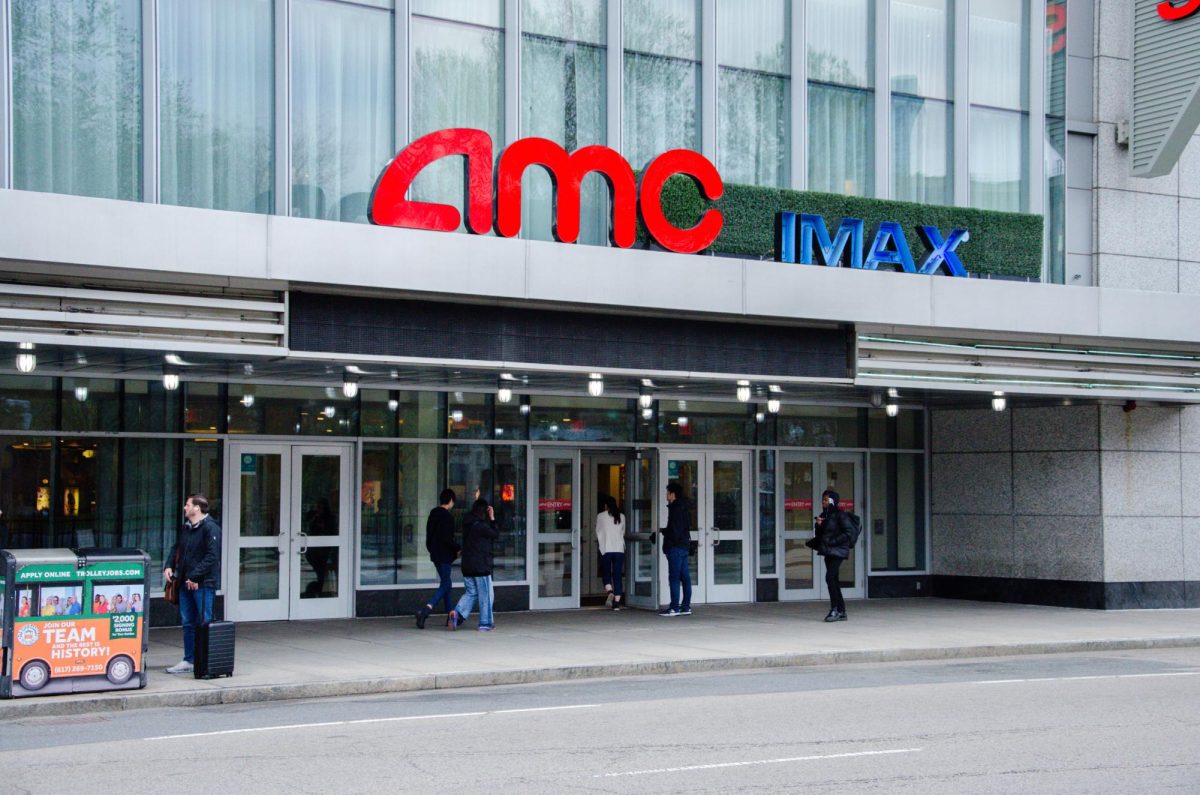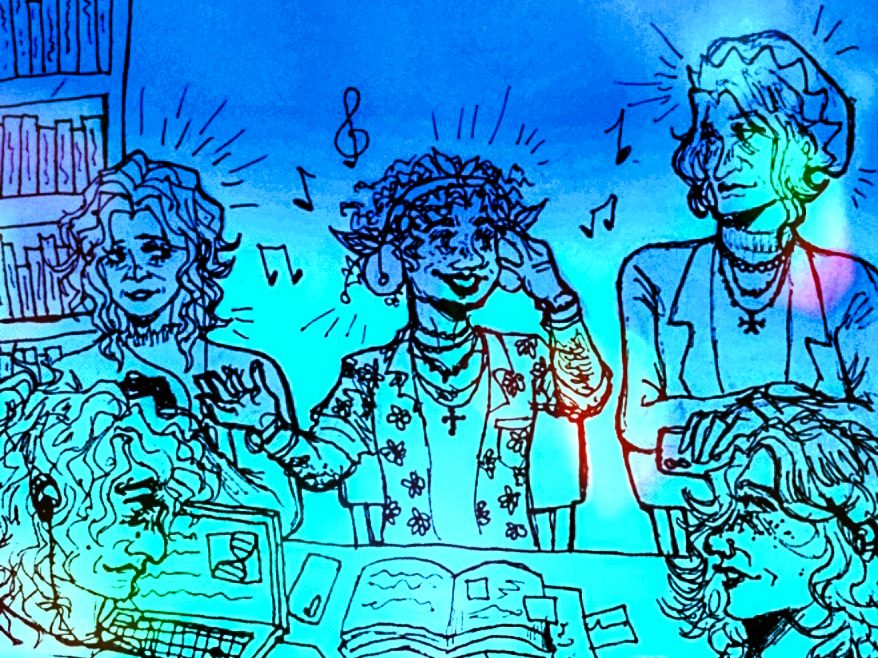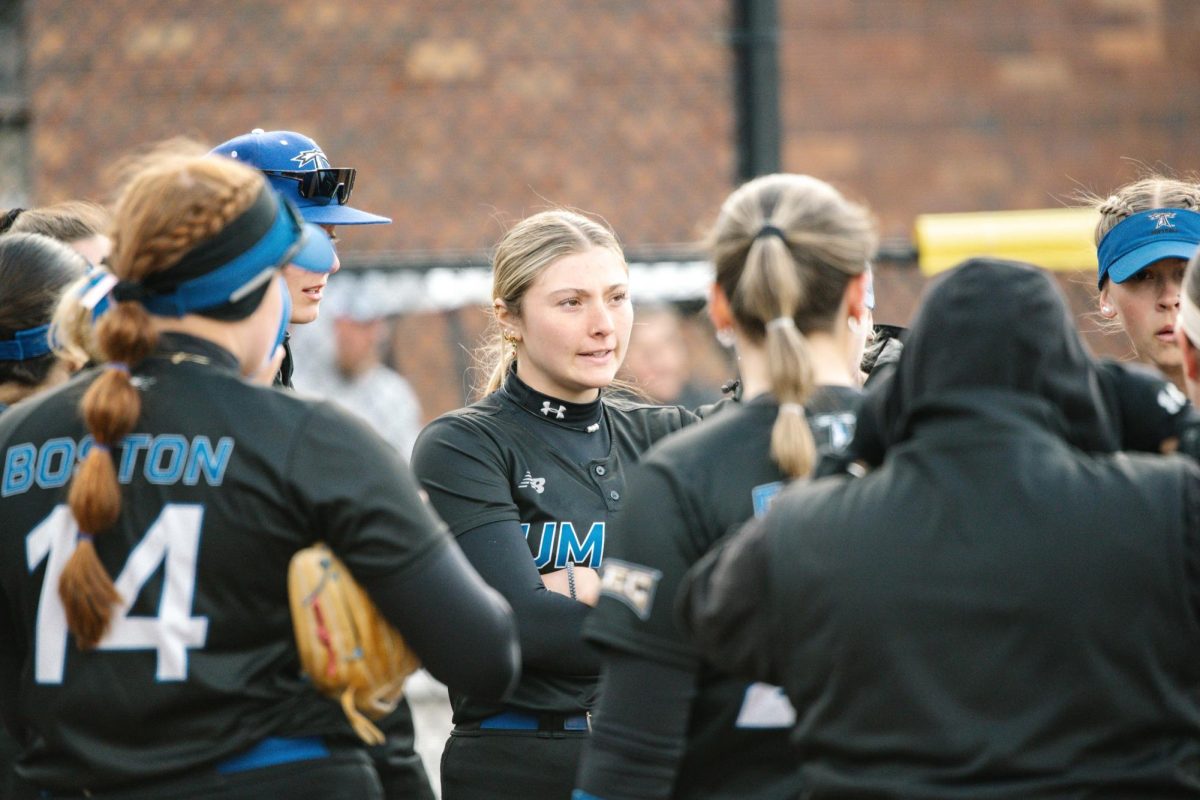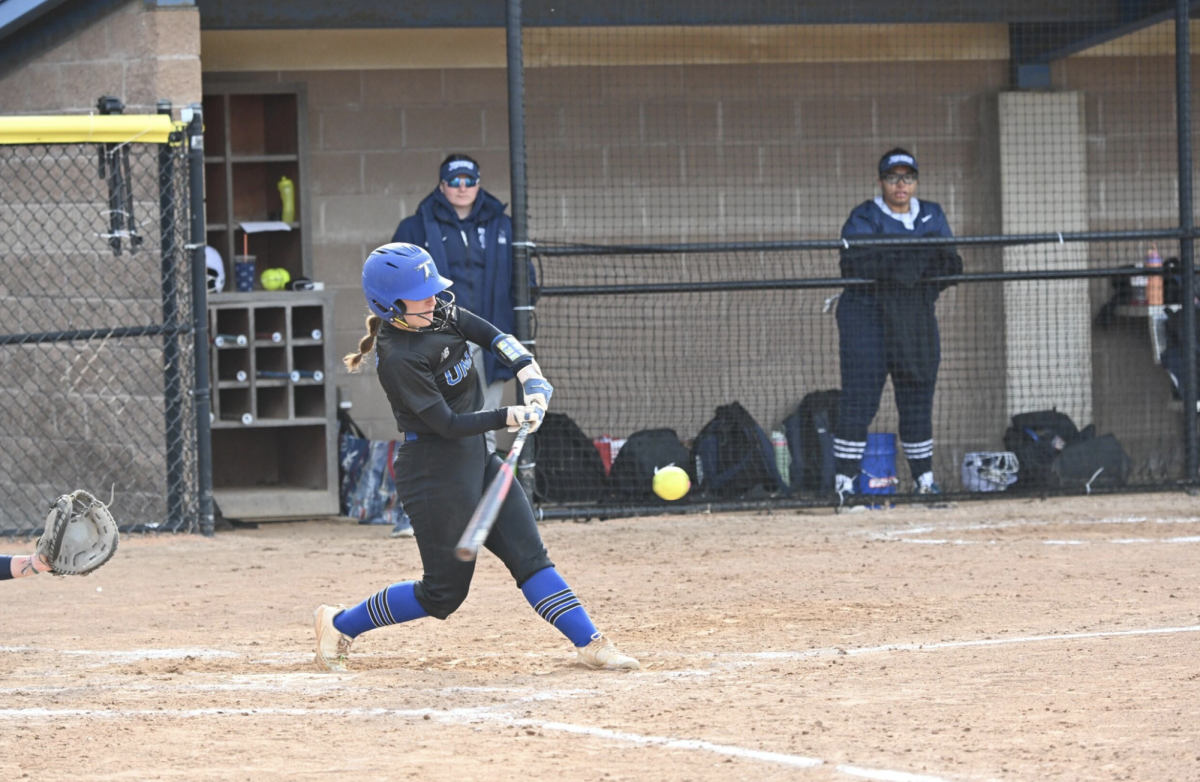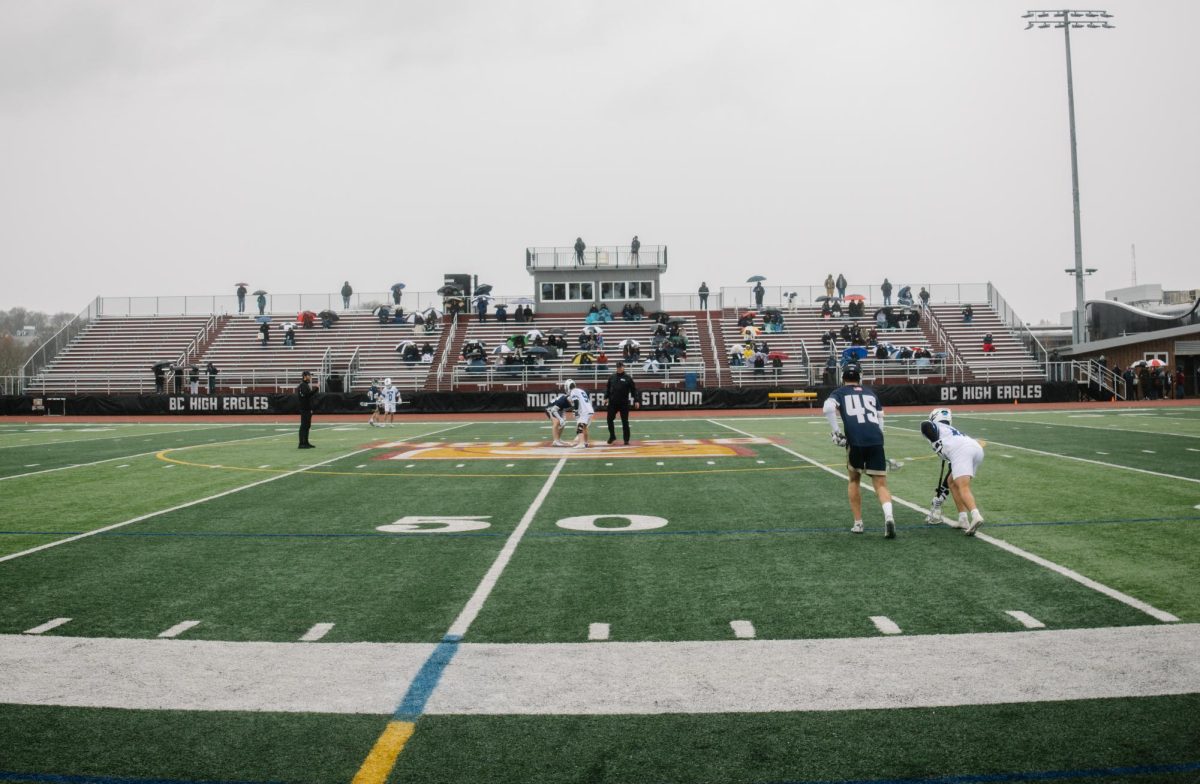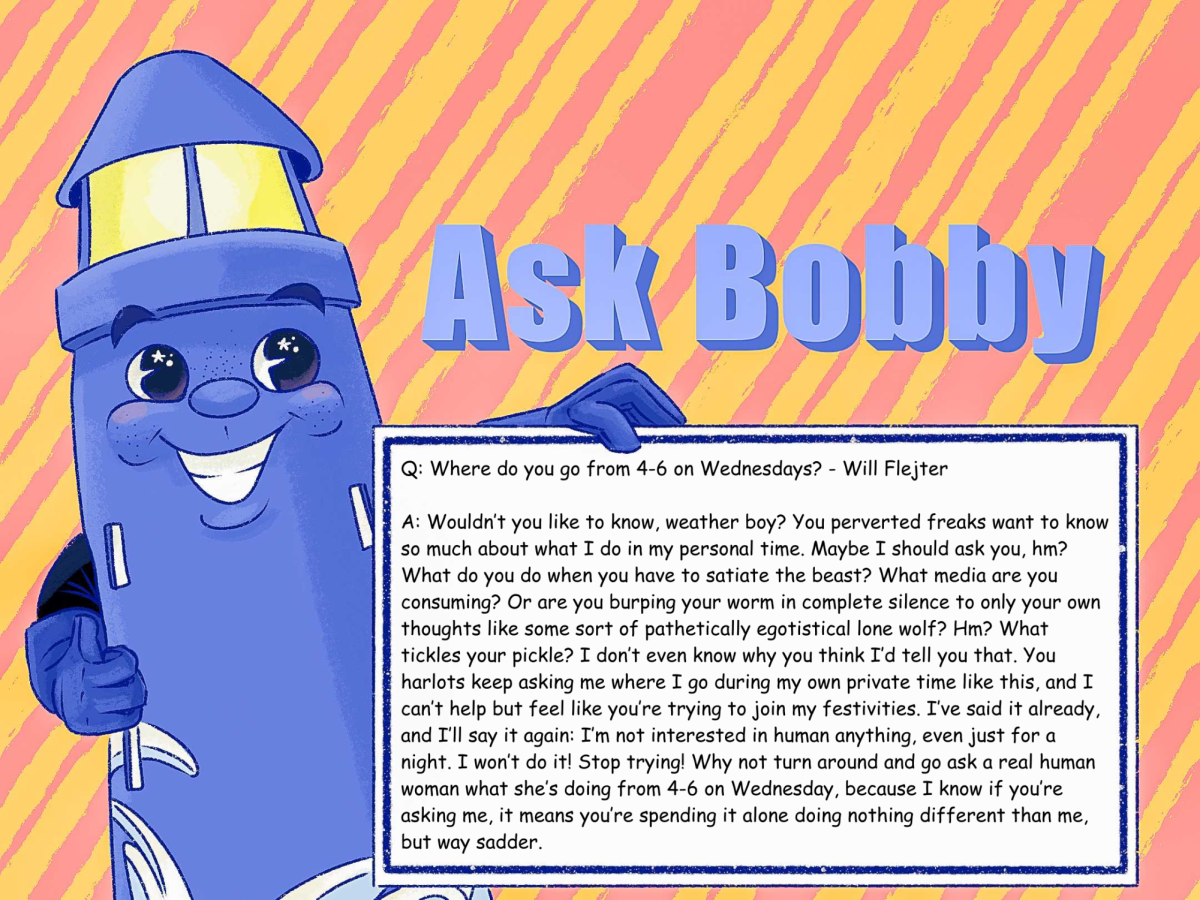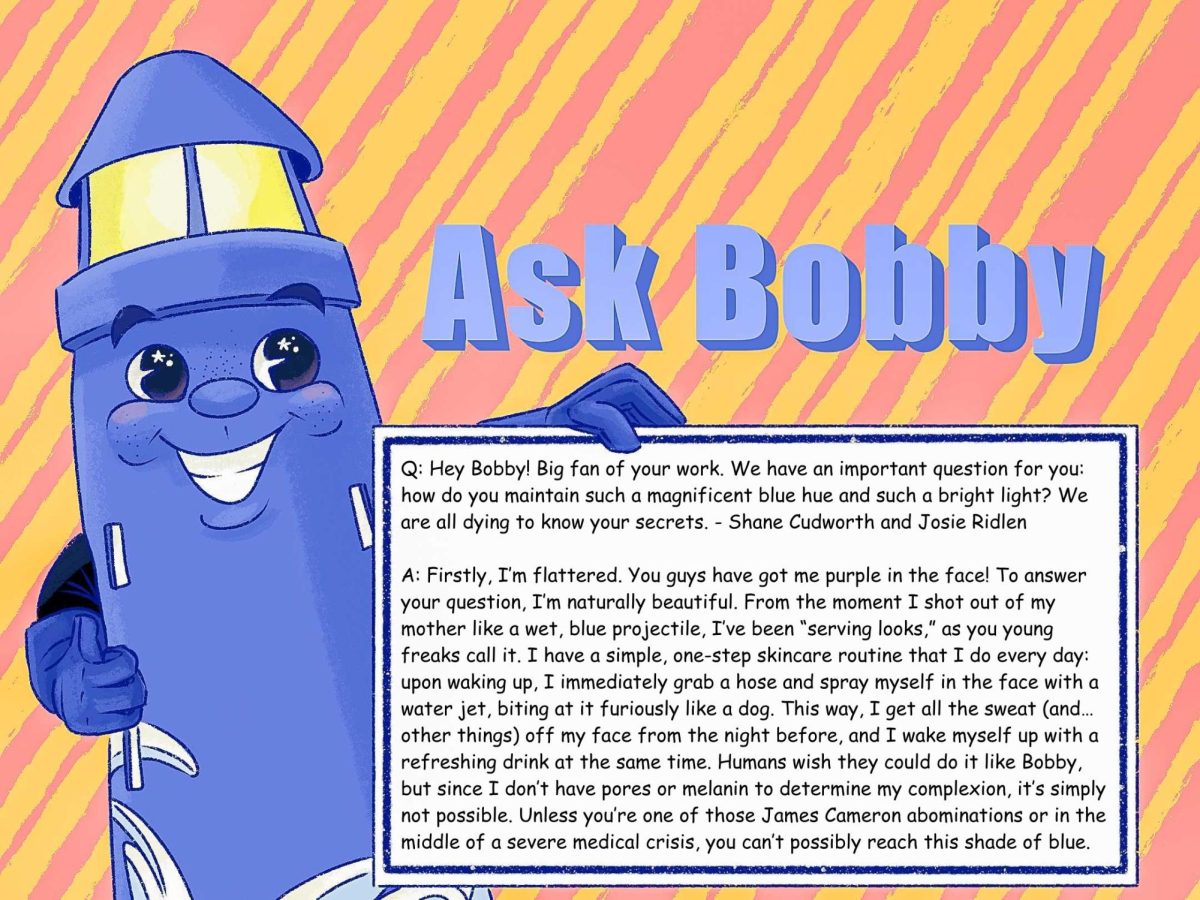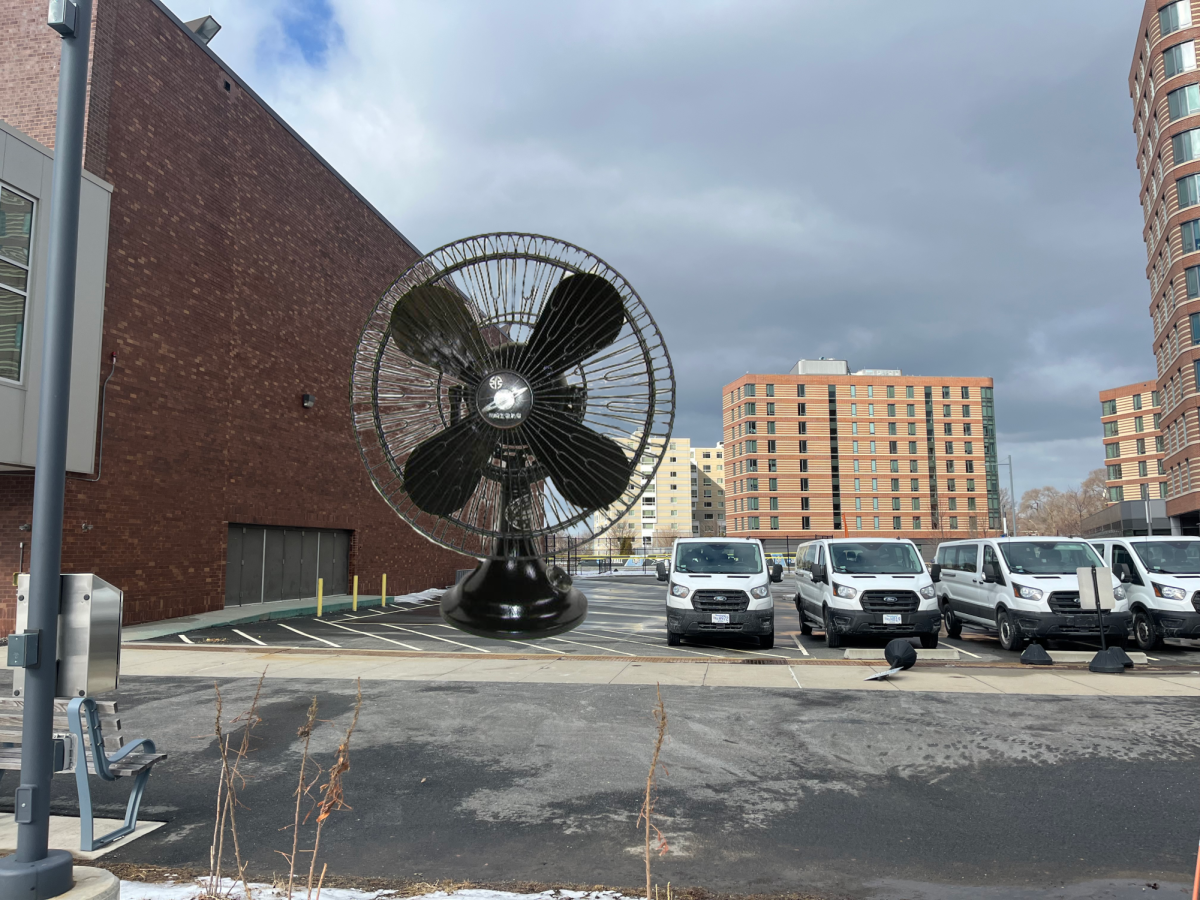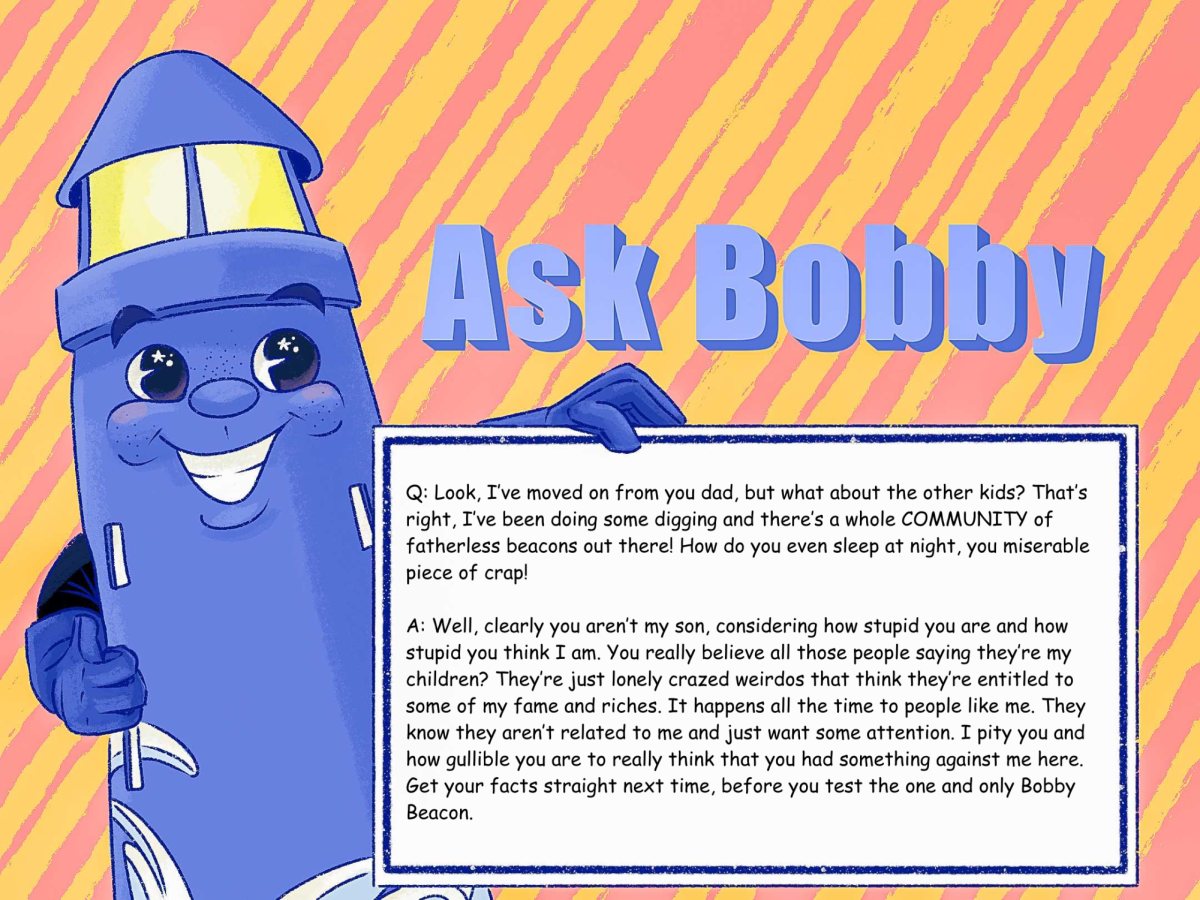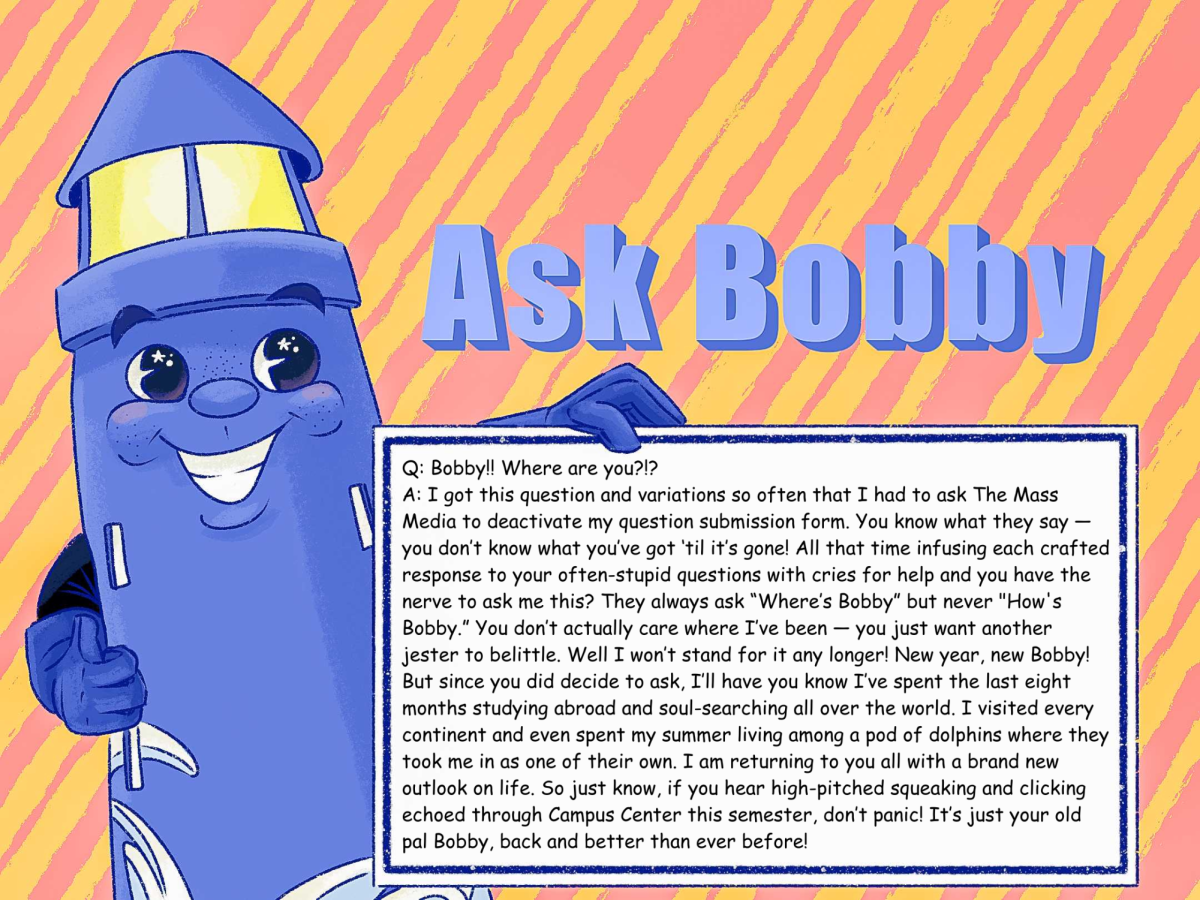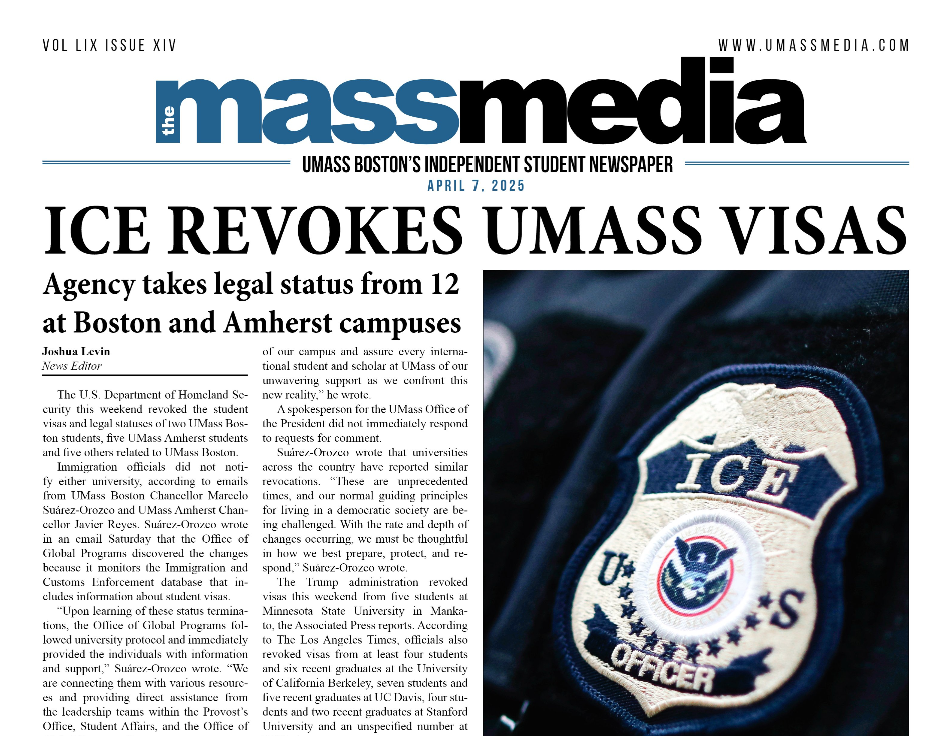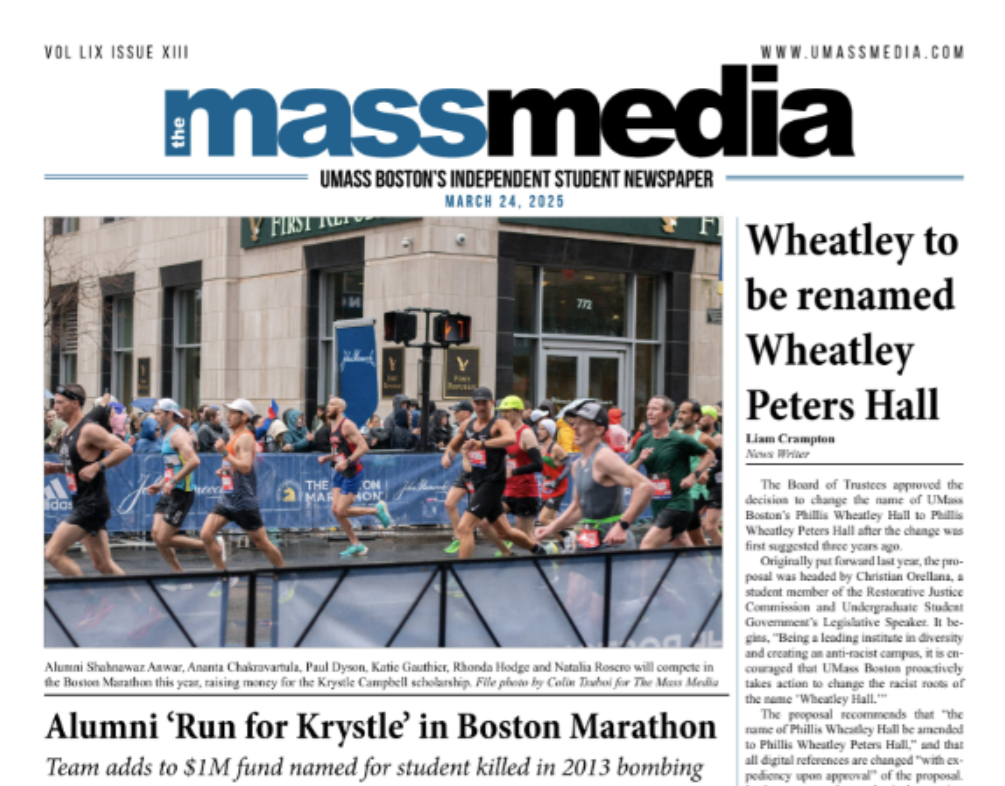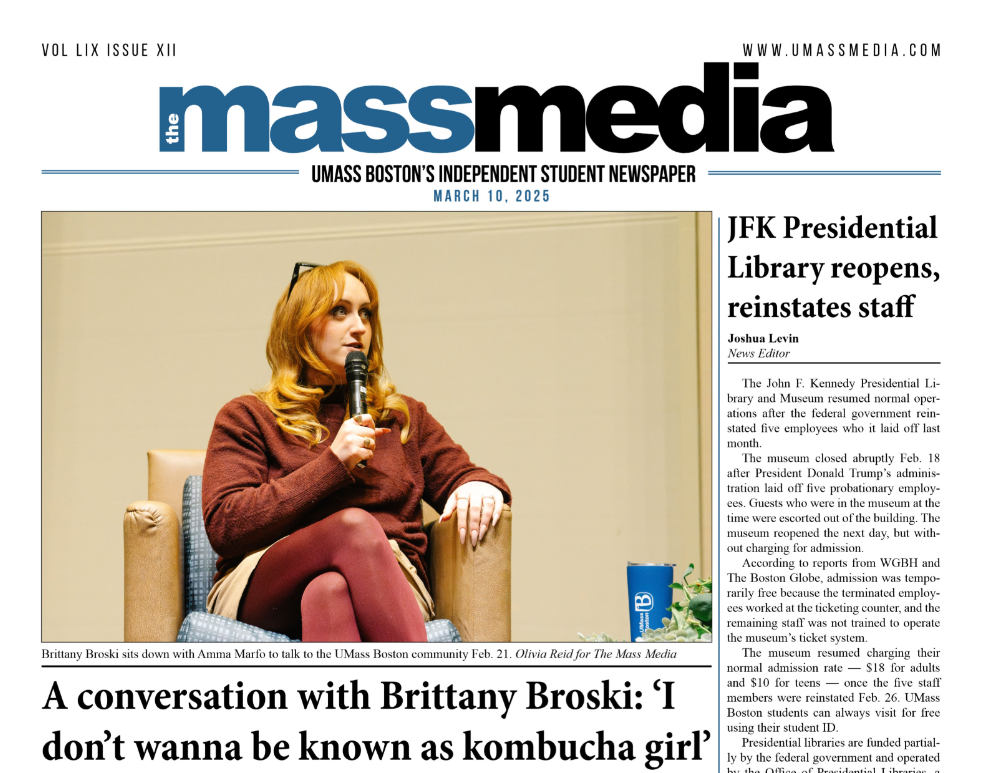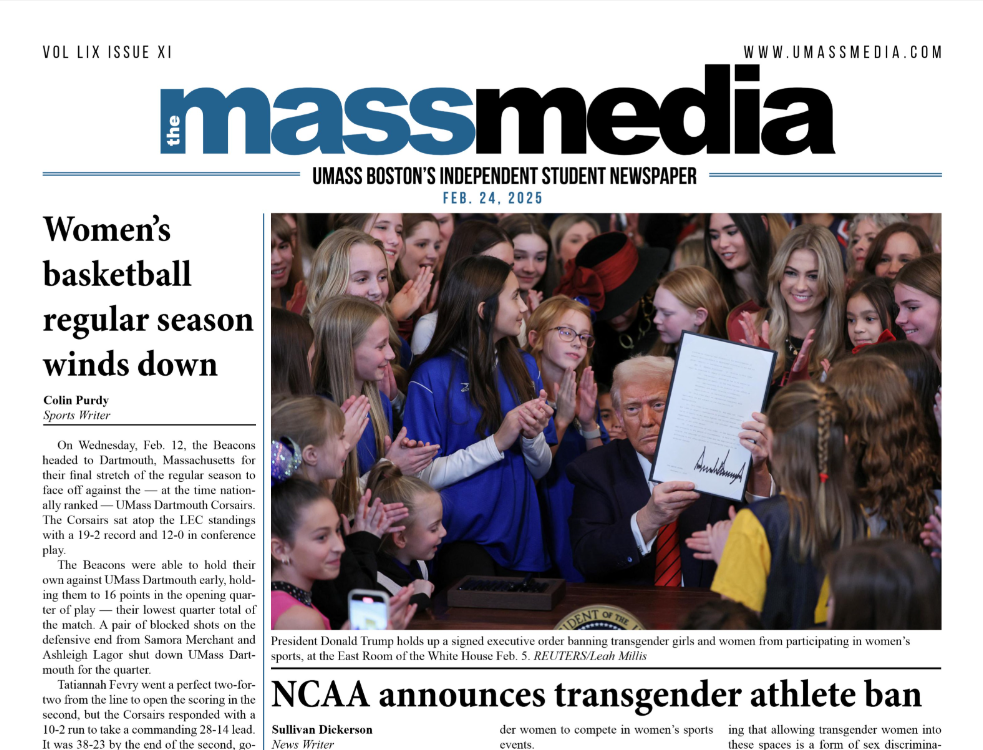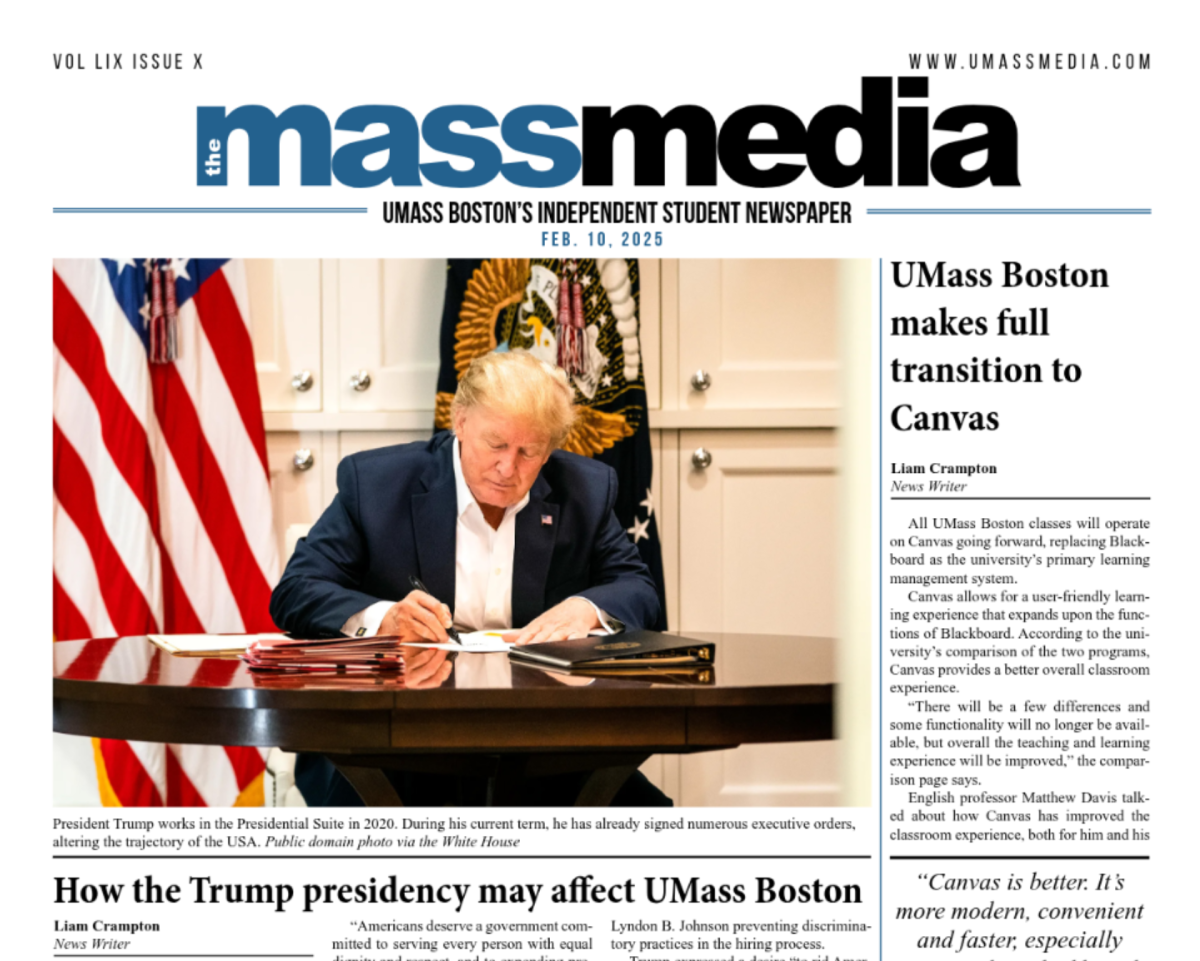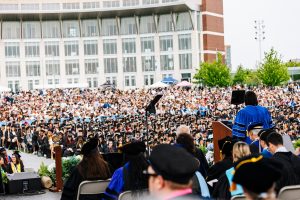Gora Clarifies?
April 24, 2002
The budget crunch has been a major concern at UMass Boston this year. Students, faculty, and staff seem to be bracing themselves for the Fall 2002 semester, when the real effects of the budget shortfall will impact the university community even more than they already have. It is anticipated that there will be some layoffs of staff, and the early retirement initiative offered to faculty, could effect the courseofferings. In response to the concerns of the UMass community, Chancellor Jo Ann Gora sent out a letter to students and parents on April 12.
The letter vaguely addressed many possibilities that the university is exploring to deal with the budget cuts, but left much to interpretation. In an effort to clarify some of these issues, The Mass Media sat down with Chancellor Gora for an interview in her lavish office to discuss the near future of UMass Boston.
The chancellor is trying to increase community on campus with such events as her student luncheons, a new music series, and a celebration for the music department’s new CD, Live at the Millennium. When asked about the luncheons she said, “I am eager to keep having them. They’ve been great for me, because they give me a chance to get to know students,” and added later, “Every one of them have been interesting, and they give students a chance to get to know some students that they don’t know. And they give me a chance to listen to stories of why students have come, and what their experiences have been here. That’s really my goal, is to understand the student experience from the student point of view and to try to improve it if I can.” In reference to improvements she added, “We’re going to get new furniture down on the plaza too because students really use the plaza. Hopefully before commencement.”
There has been a lot of talk around campus about the communication Gora extended with this latest letter, when asked whether it would continue and how, she said, “… If I invite people to town hall meeting not everybody will come, and maybe only a handful will come, whereas the letters are a way for me, I know they’ve gotten to everyone.” Later, she discussed the need she felt to communicate more directly with students in these rough times, “The problem is there’s so much news in the newspaper, in the Globe and the Herald about what could happen, what might happen, you know, that I think it raises people’s anxiety, and until we get a firm budget we have to take some steps. But, we don’t know exactly everything we’re going to have to do, and we don’t want to cut too much, and we want to take steps that we think are appropriate so that we’re prepared. So, I will certainly send out another letter to the university community, but not until we’ve gotten more hard information.”
We then moved on to slightly tougher issues, like cuts in programs and personnel. In her letter Gora assured that no faculty would be laid off. However, there will be staff layoffs. “There are some administrative positions that are being cut,” Gora explained. When asked where the cuts would hit, she replied that she could not say, “because the individuals haven’t been notified yet.”
She went on to say, “85% of our budget is in people, we’re a service organization, and so you can’t cut the budget and not impact individuals, but that’s true for any university. All universities fall into that situation, that the vast majority of their budget is in personnel, so when you have to reduce your budget you are impacting people.”
She turned then to the early retirement initiative, explaining that retirements “are helpful, because that automatically reduces the budget.” She explained that people elect to retire which automatically decreases the personnel budget.
“The problem,” she said, “is those are not necessarily the positions that we can leave unfilled. And especially in the case of faculty, we want to replace those faculty positions over time.” As of now, there are approximately 40 to 50 staff members who elected to take the early retirement option and many of those positions will not be replaced.
“It’s the faculty we’re replacing,” she explained. Some staff positions will not be replaced if those currently filling the positions decide to retire early. “For example, the university has some drivers here. Two out of the three drivers have taken early retirement. We’re not replacing those positions. We are replacing the faculty.”
What did she mean by drivers? “If you have to go downtown for a meeting, the university has some cars and drivers that will take you down there so that you’re not paying a taxi, or you’re not taking the T, or you’re not driving your car.”
When asked who could use this service, she replied, “This service is for any faculty member, any administrator, anybody who has an official meeting downtown.”
The interview then shifted to the issue of prison labor on campus. After The Mass Media reported the university’s use of the Suffolk County “Rouse t’bouts” in our April 4 issue, we received a response from unions on campus and local media outlets. “I haven’t heard anything,” Gora claimed in reference to the union response.
She explained, “I think that this was not an initiative that I was responsible for, but I think it was a good initiative. The university budget has been cut, we don’t have enough people here to do the things that need to be done and things need to be done, and if there is a segment of society that can help us take care of any of the things that need to be taken care of here, and it is legal, and it benefits us, then it’s a win-win situation,” she went on to say, “I think it’s a good thing to do. So I thought it was a good example of initiative, and I can understand why the unions don’t like it because they see it as taking jobs. But we’re in a situation in which we don’t have the money to do those things, the alternative is to not have them done, which then means the students are coming to a place that is not as safe, or as attractive, or as well-maintained as it could be. Faculty are working at an institution which is not able to cover all of its needs, so I think it was a wonderful case of initiative.”
The Mass Media then asked the impact using prison labor would have on work-study students. “We can’t use work-study students for the kinds of things that … I think work-study students have the option of saying, ‘no we don’t want to do it.’ I would be surprised if we took any positions away from work-study, because we’re happy, we’re delighted, to use work-study students because that’s a benefit to the students and it doesn’t cost the university that much. So that’s not a case in which we would want to displace work-study students. My sense was that this was not something that work-study students said they would be willing to do, because work-study students don’t have to, they can choose not to do what you need them to do … we can’t get work-study students to paint the hallways, even if we’d like to get the hallways painted, that’s not what work-study students do, so, I certainly would not have endorsed this if I thought it was taking work away from work-study students, that was not my understanding.”
She went on to say, “What I thought was delightful, because I read your article, was what the prisoner said. I thought that was wonderful when they said ‘yeah, this beats sitting around doing nothing’ and I thought well, that’s great. And, I’m a criminologist by training and that’s what I taught when I was a faculty member, and one of the problems with folks who are in jail, and I think these are folks who are actually in jail as opposed to prison and there is a difference, a big difference, so it’s a little bit of a misnomer to call it prison labor, but whatever I understand, and you know, one of the difficulties is, if you want people, once they leave incarceration, to make their living through pro-social means, it’s helpful if you give them an opportunity to learn some trades and to learn some skills and to have some job experience … I can understand the union perspective, but I did think this was a win-win situation.”
Later, when asked whether she would be attending the on-campus “Save UMass” rally, Gora said, “I had an appointment that was starting at 11:30, and so now I’ve moved it so it starts at 12:30, so I will be able to be there at 12:00 and then I will have to leave promptly. I did move it so that I could be there. I appreciated the invitation.”
(Read more of this interview next week, when Chancellor Gora will further discuss the retirements, the push toward student housing, and other matters.)




